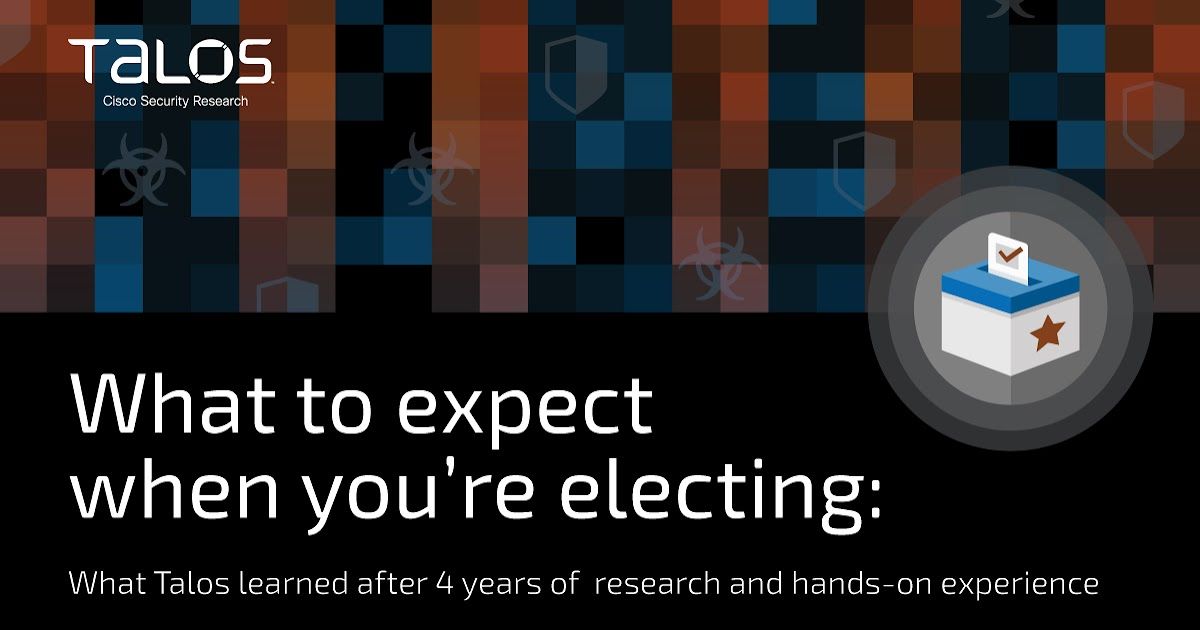Editor's note: Related reading on Talos election security research:
- /what-to-expect-when-youre-electing
- /election-roundtable-video
- /what-to-expect-electing-disinformation-building-blocks After the 2016 General Election, the talk was all around foreign meddling. Rumors swirled that some votes may have been changed or influenced by state-sponsored actors. Sanctions and accusations followed.
Four years later, is the U.S. any more prepared to protect the results of its largest elections? More than you may realize.
In Talos’ latest research paper, we take a deep dive into election security after spending the past four years talking to local, state and national officials, performing our own independent research and even watching one state plan an election in real-time.
This paper covers everything from the distribution of funds to improve election security since 2016, how communication has and hasn’t improved between state, local and federal government agencies, and much more.
We’ll cover the basic technical elements of American election architecture, how American political theory complicates the space, how far we’ve come since 2016 and things we still must overcome.
The challenges this year’s election faces are simply different from they were in 2016. Many things have changed — including leadership, technology, voting methods and even more uncertainty coming from the COVID-19 pandemic. It is our hope that this paper will be a primer for the security professional who wishes to help address the challenges American election administrators face.
There is a lot to cover in this paper, but there are two things a helpful researcher must never forget: The first is that every state — and in many states, every county — is different. As we were told early on: “If you’ve seen one election system, you’ve seen one election system.” The second is that while many things will look familiar, this isn’t enterprise security. This is how Americans distribute power — and that colors everything in this space.
You can download the full paper here.
This is only the beginning of Talos’ coverage of election security this year. In the run-up to election day, we’ll have more insight from our researchers covering things like social media’s influence on public opinion and the spread of disinformation. There’ll be podcasts, roundtables, blog posts and in-depth research to come. We hope that everyone from the everyday defender on the frontlines to readers at home will find something to take away from this and look at the 2020 election with a clearer mind.
